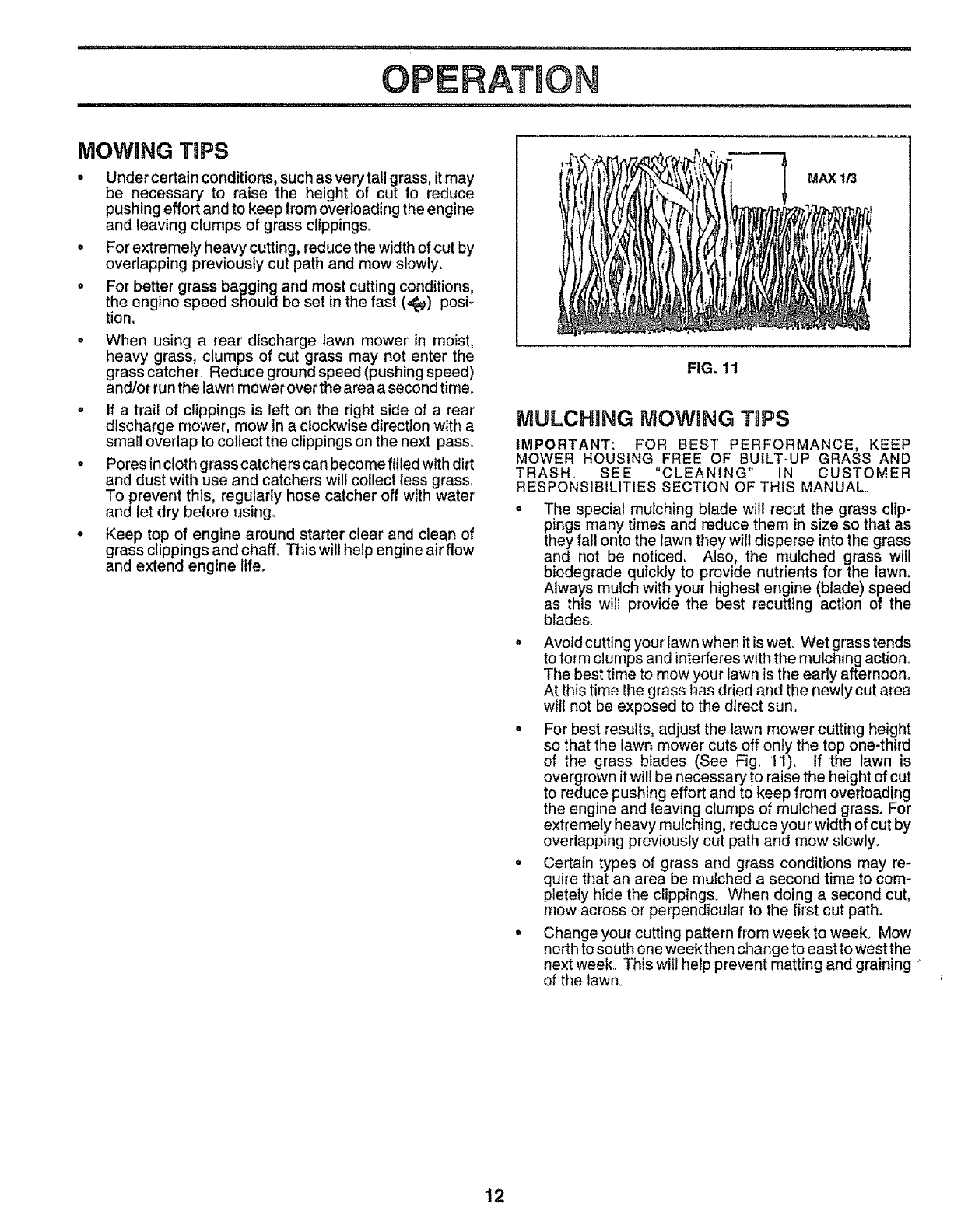
MOWING T PS
. Under certain conditionS, such asvery tall grass, itmay
be necessary to raise the height of cut to reduce
pushing effort and to keep from overloading the engine
and leaving clumps of grass clfppings.
° For extremely heavy cutting, reduce the width of cut by
overlapping previously cut path and mow slowly.
o For better grass bagging and most cutting conditions,
the engine speed should be set in the fast (,,_) posi-
tion.
• When using a rear' discharge lawn mower' in moist,
heavy grass, clumps of cut grass may not enter the
grass catcher. Reduce ground speed (pushing speed)
and/or run the lawn mower overthe area a second time.
° If a trail of clippings is left on the right side of a rear
discharge mower, mow in a clockwise direction with a
small overlap to collect the clippings on the next pass=
• Pores in cloth grass catchers can become filled with dirt
and dust with use and catchers will collect less grass,
To prevent this, regularly hose catcher off with water
and let dry before using_
• Keep top of engine around starter clear and clean of
grass clippings and chaff. This will help engine air flow
and extend engine life.
MAX 1/3
FIG. 11
MULCHING MOWING T PS
IMPORTANT: FOR BEST PERFORMANCE, KEEP
MOWER HOUSING FREE OF BUILT-UP GRASS AND
TRASH, SEE "CLEANING" IN CUSTOMER
RESPONSIBILITIES SECTION OF THIS MANUAL.
• The special mulching blade wilt recut the grass clip-
pings many times and reduce them in size so that as
they fall onto the lawn they will disperse into the grass
and not be noticed, Also, the mulched grass will
biodegrade quickly to provide nutrients for the lawn.
Always mulch with your highest engine (blade) speed
as this will provide the best recutting action of the
blades.
. Avoid cutting your lawn when it is wet. Wet grass tends
to form clumps and interferes with the mulching action.
The best time to mow your lawn is the early afternoon_
At this time the grass has dried and the newly cut area
will not be exposed to the direct sun,
o For best results, adjust the lawn mower cutting height
so that the lawn mower cuts off only the top one-third
of the grass blades (See Fig. 11). If the lawn is
overgrown itwill be necessary to raise the height of cut
to reduce pushing effort and to keep from overloading
the engine and leaving clumps of mulched grass. For
extremely heavy mulching, reduce you r width of cut by
overlapping previously cut path and mow slowly.
o Certain types of grass and grass conditions may re-
quire that an area be mulched a second time to com-
pletely hide the clippings. When doing a second cut,
mow across or perpendicular to the first cut path.
• Change your cutting pattern fromweekto week. Mow
north to south one week then change to east to west the
next week. This will help prevent matting and graining
of the lawn_
12
